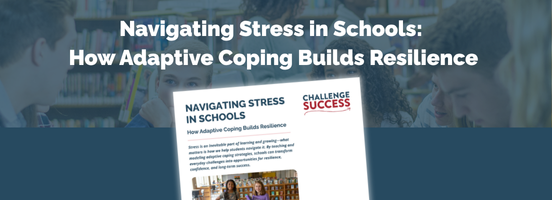In our confusing and competitive world, it is not easy to discern what responsibilities parents have toward our children. We are often uncertain about when and whether to hold them close or encourage them to explore. As our kids grow beyond cribs, car seats, and carriers, advice abounds on how to keep them safe while preparing them to take on the world. Here is some from two ancient sources — Aristotle and the rabbis of the Talmud.
Aristotle observed that when stonemasons carved round pillars from slabs of stone, their straight edge rulers proved useless. So they fashioned a new tool — a flexible ruler made out of lead, which they wrapped around the columns — the first tape measure.i Aristotle recognized that in order to do their work well, the craftsmen needed to, literally, bend the rule. He argued that learning the right way to do the right thing requires knowing when and how to bend the rules — or practical wisdom.
The rabbis of the Talmud ask, “What are parents’ responsibilities toward their children?” and answer — a parent should welcome children into the community, guide them toward an ethical life and a life partner, and prepare them for self-sufficiency by teaching them a craft or a trade. And there are some who add — to teach them to swim. (Kiddushin 29a)
Amidst enough hovering helicopter parents to create traffic jams, there are some brave souls trying to exercise Aristotle’s practical wisdom — by inculcating independence, judgment, and experimentation in their children. But they face a reflexive rule-bound, one-size-fits-all orthodoxy that can chill or frustrate their efforts.
This summer Alexander and Danielle Meitiv were finally cleared by Maryland’s Child Protective Services of all child neglect allegations. What neglect were these well-educated suburban scientists accused of? They allowed—no, they carefully prepared—their 10-year old son and 6-year old daughter to walk home alone from a playground in their suburban neighborhood. Someone saw the kids without an adult and called 911. Five police cars swooped down on the Meitiv house and threatened to remove the children from their home if their father didn’t immediately sign a “safety plan.” The police and Child Protective Services detained the 6- and 10- year olds for five hours, causing the terrified boy to worry that his father would be arrested.ii
To be sure, there are many instances when we are grateful that authorities are pro-active, decisive, and expeditious. This was not one of them. No one who intervened — not the neighbor who saw the children walking casually down a suburban street, nor the police who came to an apparently stable household, nor the authorities who questioned ostensibly well-adjusted kids — seemed to be willing or able to exercise judgment about what the situation called for or whether the children were in distress. They were not trained for discretion. Rigid procedures undermined insight. None of the authorities we rely upon to not only protect but also to serve the public, displayed practical wisdom.
Remember that aside in the Talmud — parents are obligated to teach children to swim? “Why?” ask the rabbis. “Because their life may depend upon it,” they answer. (Kiddushin 38b)
I think of the Meitivs’ kids’ footsteps as akin to the swimmer’s strokes of the Talmud. At what point will it be safe to navigate the world around us if we have never practiced doing it? You can read about stroke technique or watch videos of swimmers from the comfort of a dry living room, but it won’t prepare you for that first time water goes up your nose, or a wave pushes you under.
No matter how much we as parents might want to protect our kids, we can’t actually swim for them. Both metaphorically and actually, when we teach a people to swim, we give them the chance to handle risks and make their way through hazards without someone more experienced shielding them at every turn. They are the ones who get to withstand the currents and unanticipated shoals that may alter their path. Learning to swim involves not just knowing how to float, how to breathe, how to stroke, how to tread water — but also understanding when each is called for.
Look back at that list of obligations of a parent — learning, finding a life partner, having a livelihood, being prepared to face uncertainty and danger. These markers of a good life are connected. They are the curriculum for character.
We need to teach our kids — and ourselves — how to think, not only to understand rules, but also when and whether to bend them. We can infuse in ourselves and inculcate in our children practical wisdom. We can practice moral imagination, engender empathy, and create courage. Happy swimming!
Rabbi Patricia Karlin-Neumann came to Stanford University in 1996. She is the first university chaplain from a tradition other than Christianity in Stanford’s history, and is a member of the Challenge Success Advisory Board. In 2001, she was appointed senior associate dean for Religious Life. She teaches and lectures widely on Jewish feminism, rabbinical ethics, the relationship between religion and education, and social justice.
iBarry Schwartz and Kenneth Sharpe, Practical Wisdom: the right way to do the right thing, p. 28
iihttp://www.tabletmag.com/jewish-life-and-religion/189253/letting-go-of-our-kids
http://www.slate.com/blogs/xx_factor/2015/01/16/maryland_parents_investigated_by_the_police_for_letting_their_kids_walk.html
http://www.washingtontimes.com/news/2015/jun/22/free-range-meitiv-family-cleared-of-all-child-negl/
